I became a gardener 17 years ago when we bought our first home, a north-facing ranch set on a corner of a block where the rest of the homes faced east or west. We had a small front yard and two side yards. To the back was about 10 feet of lawn, which separated the south side of our home from our neighbor's driveway. There and on the west side, there was no garden at all, just grass right up to the foundation.
The east yard, on the other side of our attached garage, was dominated by trees. There were a few shrubs and a bit of ground cover. Half the lawn was thick and luxuriant, but the other was scraggly and more dirt than anything because of the shade.
The brunt of the landscaping was committed to the front yard. Does that sound like an assault? There were 14 shrubs jammed into the beds on either side of the front door, and they were a hodgepodge of varieties, planted without any consideration for design or even reason.
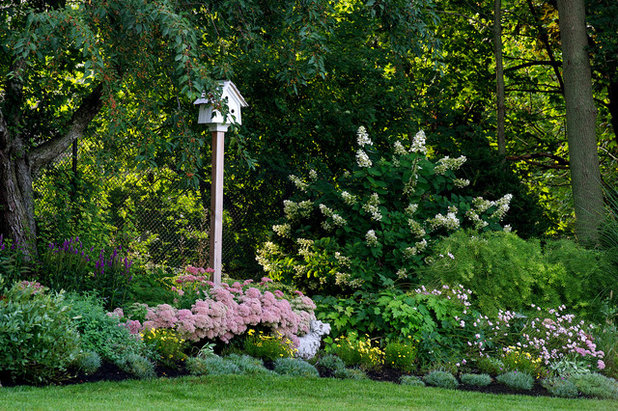
Amy Martin Landscape Design
I was eager to begin gardening but felt overwhelmed by how much needed to be done; every yard seemed to be screaming for attention. My husband, Paul, and I were the parents of a baby, as well as new homeowners, and our budget was small. Paul had no interest in gardening and was committed to the most minimal of maintenance: mowing. I was dreaming of creating something Garden of Eden–ish, or its 21st-century approximation; never mind that I knew next to nothing about gardening.
I had a huge vision but no plan. I tackled my yards with energy and passion, learning as I went, but I took the long way round and ultimately created more work than was practical for me to maintain at that stage of life, if ever at all.
If this is your first season of yard care and gardening, here's the advice I wish I'd been given when I was in your shoes.
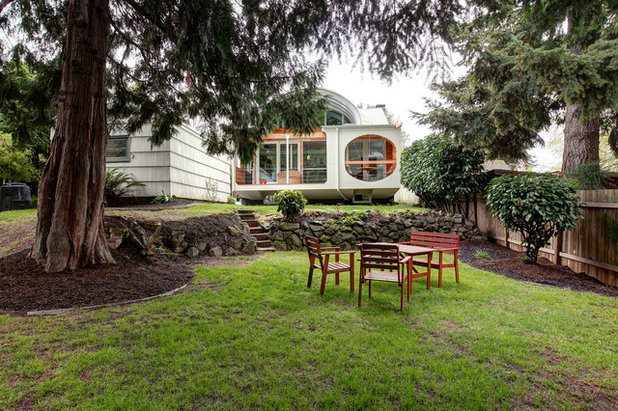
doon Architecture of the Hamptons PC
1. Clean up. You might not want to hear this, but it really is the first and most important thing to do. Start with the lawn even if you have more weeds than actual grass; mow it and give it a good raking. Spring raking removes thatch and any debris from the fall and winter. If you look closely at this picture, you'll see the lawn is a little bare, and except for the trees and a few shrubs there aren't many plants, but it's beautifully kept and very pleasing — a lovely, peaceful place in which to relax.
See more of this house, which has appeared on
Portlandia
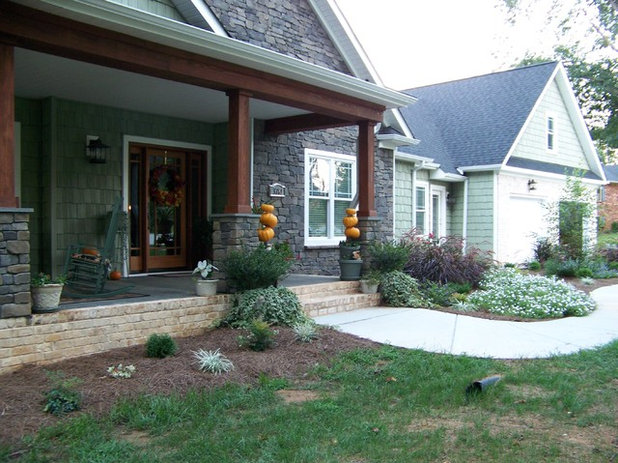 2. Weed any existing garden beds.
2. Weed any existing garden beds. If you're such a beginner that you're not quite sure you'll know a weed from a perennial, that's OK. Snap a few pictures and take them to your local garden center or post them in the Houzz Design Dilemmas section in Discussions, and a kindly gardener will almost certainly help you.
Houzz guides to winning the weed war
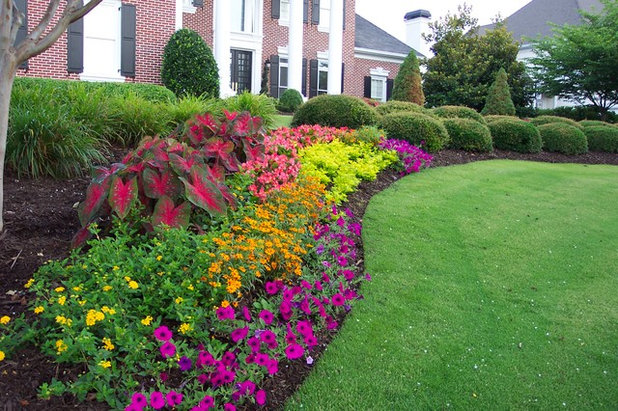
jenny_hardgrave
3. Edge your garden beds. This is simply creating a clean break between the grass and the garden area, as shown here. Take a flat-edged shovel and "cut" along the edge of your bed. If your beds are straight lines, this is where you can get creative and add some gentle curves.
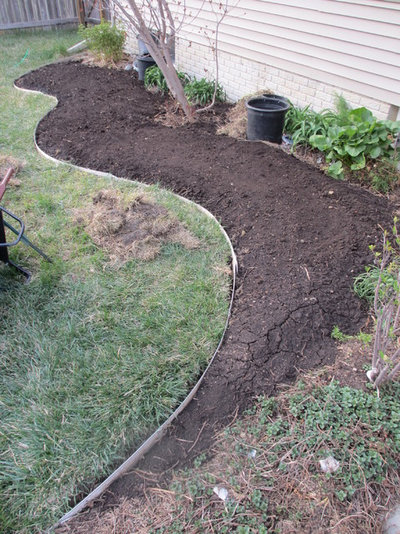
Benjamin Vogt / Monarch Gardens
If your grass is thick, this can become a really big job fast, so I don't recommend expanding existing beds your first season.
Edging materials can be used, but I wouldn't bother. I actually removed the black plastic ones from my first garden, because I didn't like the look and they didn't work. I prefer the cleaner look of the lawn meeting the soil covered with mulch, which brings me to my fourth suggestion.
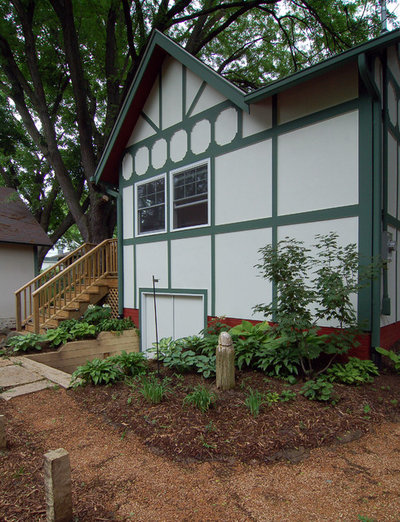
Kaufman Construction Design and Build
4. Mulch. If you don't have many plants, this is even more important. Mulch creates a tidy look, but even more important, it suppresses weeds and helps retain moisture in the soil. Be careful not to layer it any thicker than 4 inches, and leave a little room around the base of every plant.
How to Pick a Mulch — and Why Your Soil Wants It
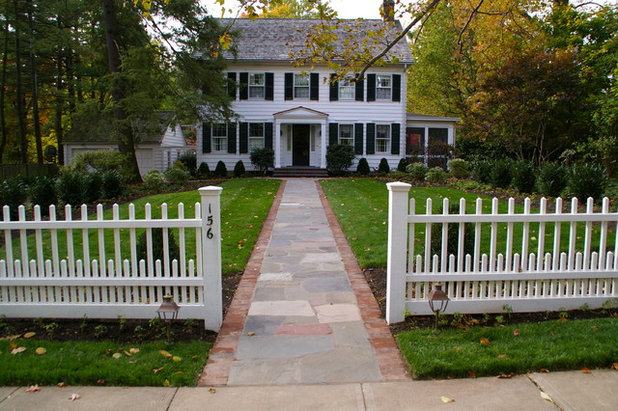
Environmental Landscape Associates
5. Edge the lawn along sidewalks and your drive. This is like eyeliner; it will make everything pop. If the lawn is quite overgrown, rent a gas-powered edger to do the hard work, but once you do the major cutting, it can be maintained with an electric edger, which is relatively inexpensive. My one-armed mother (another story!) likes to edge by hand with a serrated kitchen knife. This works well for smaller jobs, but be careful!
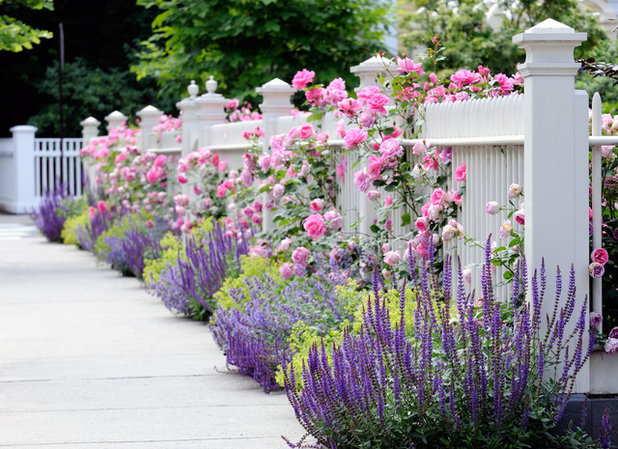
dabah landscape designs
You might be wondering, but what about
gardening? What about the flowers?
This is where things get fun, but you need to focus. If there are limits on your time or your budget — like there are for almost everyone — this is crucial.
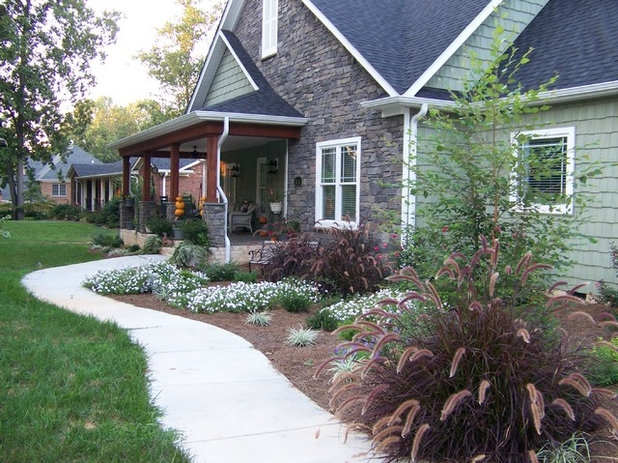 6. Prioritize.
6. Prioritize. When I reconsider my first house, I know that to start, I should have ignored the south and west yards, where the grass went straight to the brick foundation. There are worse things than boring, and well kept goes a long way. The east yard, which was the natural play yard, wasn't a priority, either since our baby wasn't even ambulatory. If I could do it all over again, I would have focused my first efforts on the front yard, the one I actually saw every day.
Decide where you want to start. Your front yard is the obvious choice, and the task might be as simple as tidying everything up and flanking the front door with a couple pots of annuals.
It's really OK to start slowly. Getting things cleaned up and establishing new yard maintenance routines might be all you want to tackle your first season.
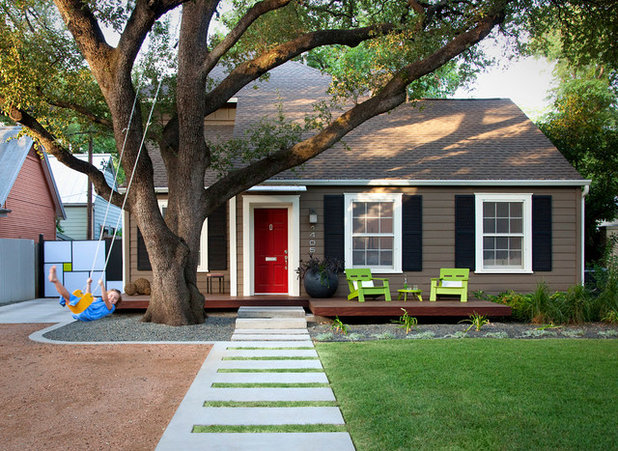
austin outdoor design
Simply cleaning and maintaining, which is a lot, you'll learn whether or not you really enjoy gardening. If you find yourself just wanting to be done with it, give yourself a break and take an easy-care approach. Plant a row of shrubs like hydrangea or boxwood. If you have pleasing foundational plantings, keep them maintained and call it good.
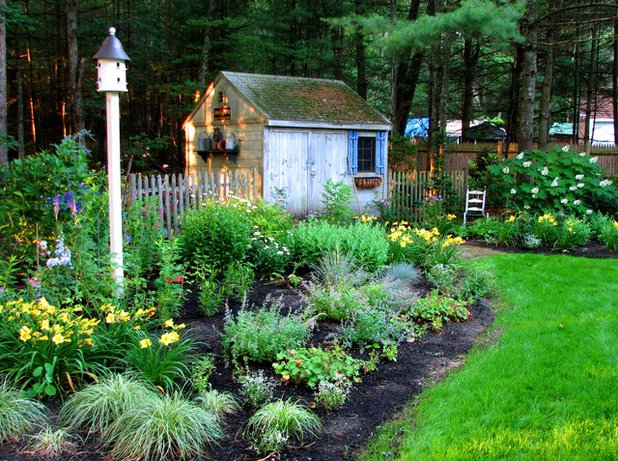
Garden Tech Horticultural Services LLC
If the cleanup gets your heart racing and you're excited for more to come, if you find you can't wait to get to the planting, odds are that you're a gardener at heart. Now you need to:
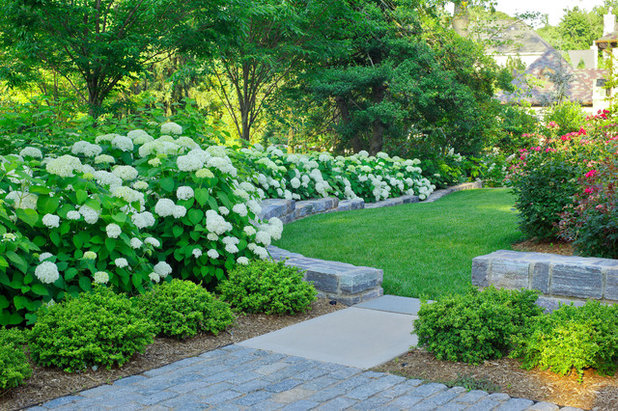
Katia Goffin Gardens
7. Determine your style. Do you like things formal and manicured or informal? Do you love symmetry?
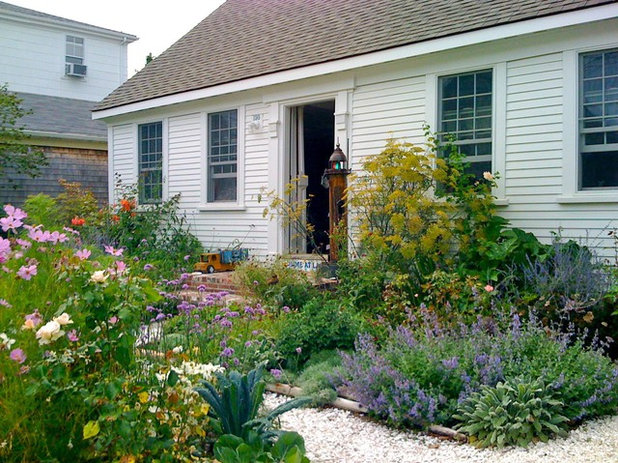
Or is the happy "mess" of a cottage garden what you crave?
Browse through ideabooks and pictures here on Houzz under the Outdoor Living category. As you create your own ideabooks, your tastes and style will emerge.
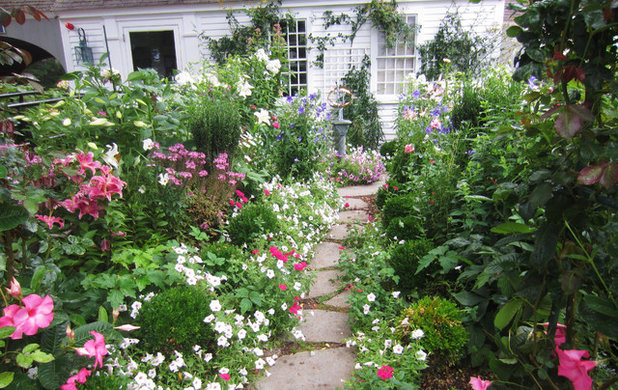
Maria Hickey & Associates Landscapes
8. Assess conditions. What kind of light do you have? Whether your yard is mostly in the sun or in the shade, you'll need to plant accordingly. This can be a disappointment for new gardeners, who might have visions of peonies and roses and lilacs dancing in their heads. It can be disappointing to consider plants that can handle less sun; it certainly was for me.
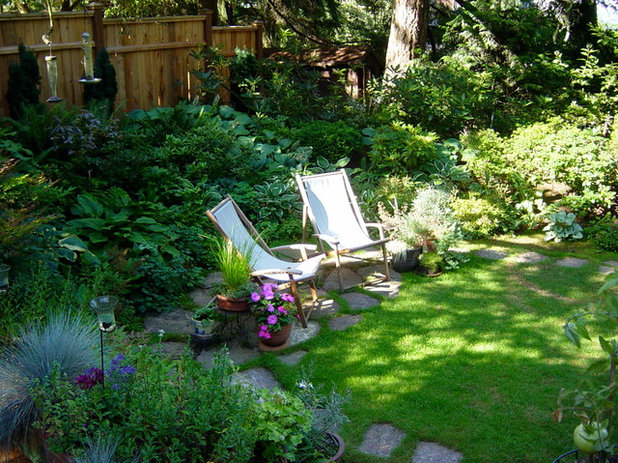
I remember reading various writings by gardeners who began with this frustration and found that shade gardening became their preference. I found this patronizing then, but with time I too have embraced the special beauty of shade gardens.
7 Shade-Loving Rarities of the Plant World
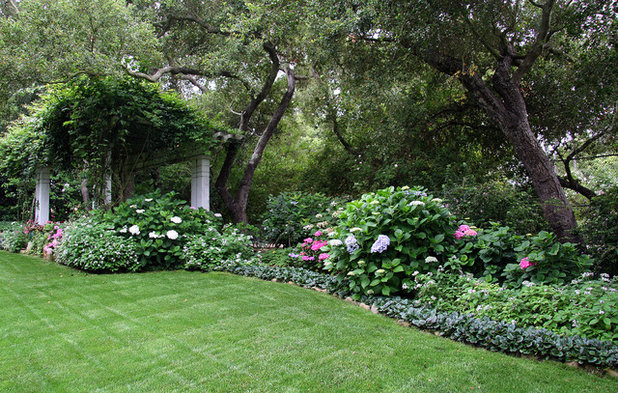
Donna Lynn - Landscape Designer
As part of assessing conditions, consider what you already have and what you you might want to remove. On our current property, there is an 8- by 80-foot bed that runs the length of one our yards and borders the woods. The previous homeowner installed a post and rail fence but planted nothing taller than 12 inches.
Years ago a friend helped me dig everything out and replant it with a variety of shrubs and perennials. It was beautiful, but I'm in the process of taking it all out. Our gardens have changed. I already have so much to maintain, and such a large bed at the edge of our property isn't a priority. We removed the fence, and I'm in the process of removing the plants. Many I'll be able to reuse, but some I'll be offering to friends, which is why you should:
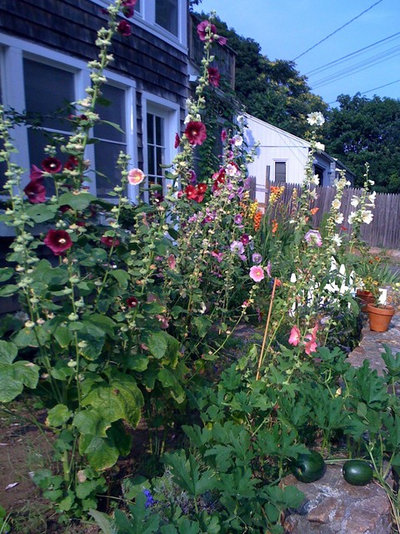 9. Put the word out.
9. Put the word out. As you begin to know what you want and need, let people know. What you're longing for — a row of peonies or a bed of ferns — might be the very thing a friend, or a friend of a friend is looking to part with.
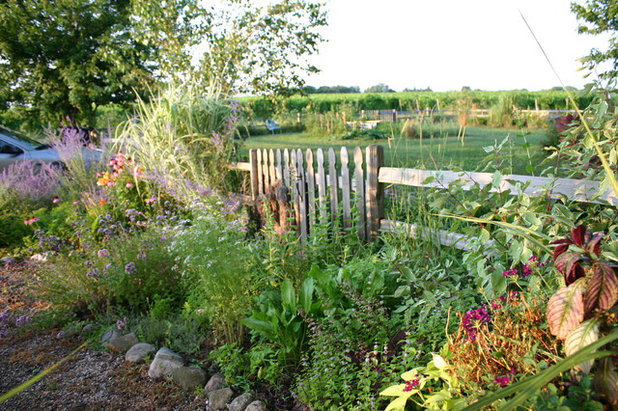
Rebekah Zaveloff | KitchenLab
10. Enjoy the beauty. A gardener learns to take the long view, and you must, or how could you bear to wait years for your vision to come to — sometimes literal — fruition? One of the hazards is the tendency to see only what's wrong and to miss the beauty of now. Don't let that happen with you. Week by week, even day by day if you're able, take the time to celebrate and enjoy all you've accomplished.





